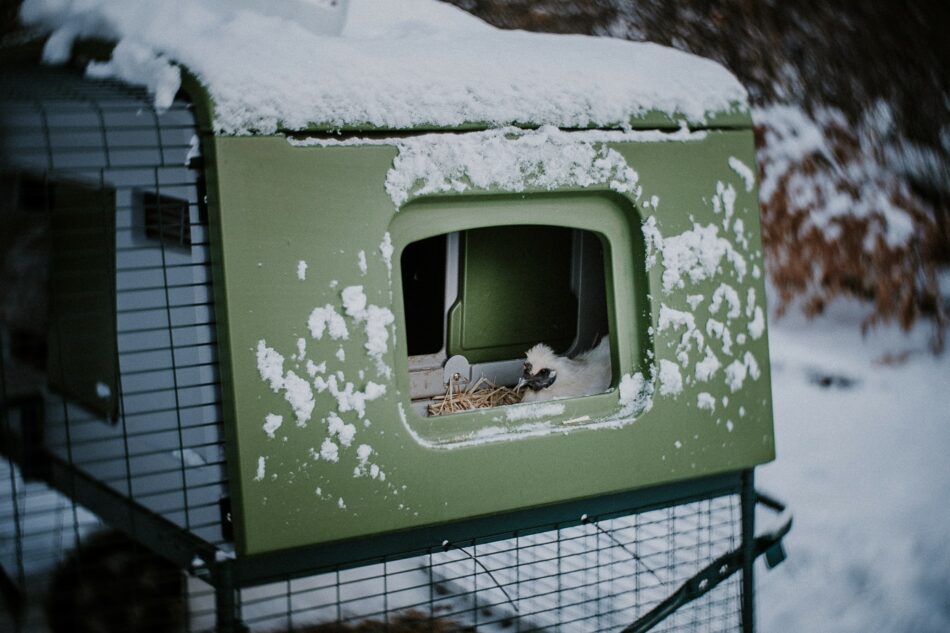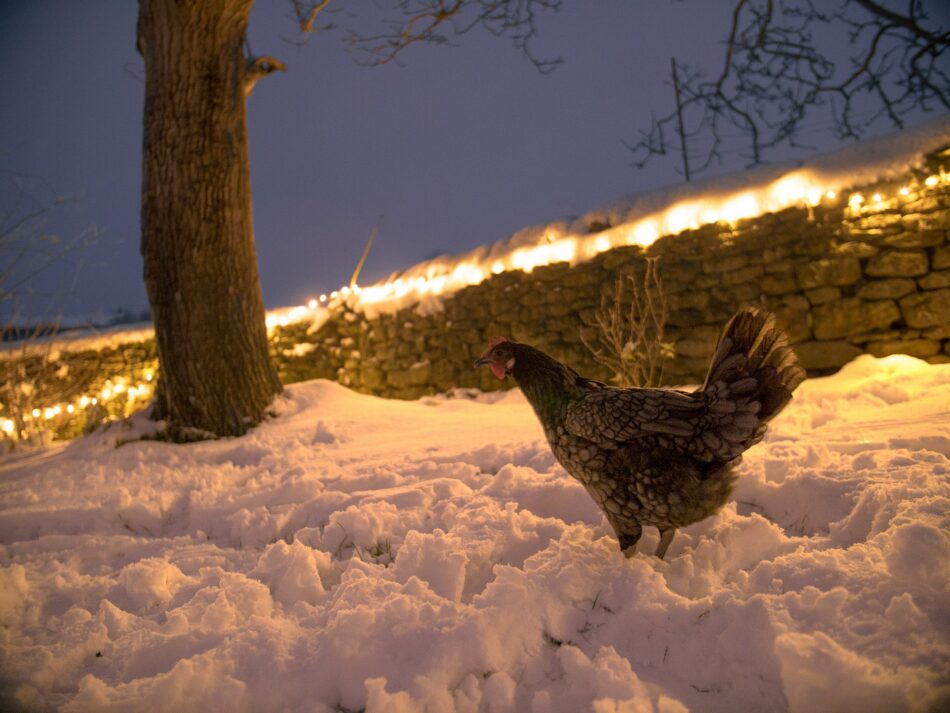How to prevent your hens’ eggs from freezing
If you live where winter brings a real chill, you’ve probably discovered a frozen egg or two in your chickens’ nesting boxes. It’s definitely not ideal, frozen eggs can crack, spoil, and leave you missing out on the freshest breakfast possible. But don’t worry, with a few easy tricks, you can keep your hens’ eggs safe and delicious all season long. Here’s how to prevent your hens’ eggs from freezing, so you can keep enjoying fresh eggs even when the temperatures drop.

Why do eggs freeze?
Eggs are mostly liquid inside until they’re cooked or on their way to becoming a chick, and just like any other liquid, they have a freezing point. Chicken eggs will start to freeze at around 29℉, and it only takes a couple of hours for them to turn solid. Because a non-broody hen doesn’t hang around to keep her eggs warm, those freshly laid treasures are left at the mercy of the cold. As soon as the temperature drops, eggs in the nesting box can freeze quickly, especially if your coop isn’t super cozy. Even a short cold snap can leave you with cracked, frozen eggs, which is why it’s so important to stay one step ahead of the weather and give your hens’ eggs a little extra protection when the chill sets in.
How can I tell if an egg is frozen?
Frozen eggs can feel heavier than normal, and you might notice they crack, bulge, or even burst from the pressure inside. Sometimes, you’ll collect an egg that isn’t totally frozen yet, crack it open and you might spot a slushy, half-frozen egg white. Partially frozen eggs can feel a little wobbly or off-balance in your hand, and you might even hear a sloshing sound if you give them a gentle shake. Keep an eye out for shells that look a bit strange, feel extra cold, or have a frosty layer on them. Tiny hairline cracks are another giveaway that the cold has gotten to your eggs. If you’re ever unsure, just give the egg a little shake, if it sounds different, chances are it’s been nipped by the frost. Spotting these signs early can help you prevent cracking into an egg that is past its best.
Can I use frozen eggs?
Eggs that have been frozen just aren’t the same as the fresh ones you’re used to. While you can thaw and eat a frozen egg, the texture turns grainy and the taste isn’t nearly as good. Thawed yolks get thick and gelatinous, making them tough to mix and not so great for your favorite recipes.
Any eggs that have cracked or look a little misshapen from the pressure should go straight to the compost, especially if they’ve been frozen. Once the shell cracks, it opens the door for bacteria and other nasties that can make you sick. It’s always safer to toss out frozen or cracked eggs and put your focus into keeping your hens’ eggs from freezing in the first place.
3 ways to prevent eggs from freezing
Insulate your coop
Insulated chicken coops are a game-changer when it comes to keeping your hens cozy and their eggs safe from freezing. Good insulation helps trap your flock’s body heat, so the warmth sticks around instead of escaping into the chilly air. This means your coop stays warmer than the outside, even when winter really sets in. If you’re thinking about adding insulation to your current coop, just make sure you don’t block the ventilation; fresh air is still super important to prevent moisture build up inside and keep your hens healthy. Omlet’s Eglu Chicken Coops are designed with twin-wall insulation and draft-free ventilation, so your hens stay comfortable all season long. And if you live somewhere that gets seriously cold or have a small flock, you can add extreme temperature protection for even more peace of mind.
Focus on the nest box
Make your hens’ nesting box as warm and inviting as you can. Thick bedding like straw is perfect for winter, it gives your hens a soft, cozy place to lay and helps keep their eggs insulated from the cold. You can also hang some strips of fleece or another thick fabric as a curtain in front of the nesting area. This simple trick helps block out chilly drafts and keeps the warmth where it belongs. Chicken nesting boxes should always be lifted up off the frozen ground, so if yours are sitting flat, try raising them a bit to keep the cold at bay. The main goal is to keep the nesting area warm enough so your eggs don’t freeze before you can collect them, so don’t hesitate to pile on a little extra bedding or insulation when the temperatures really drop. A snug, draft-free nesting box not only keeps eggs safe, but also encourages your hens to keep laying all winter long, ensuring consistent egg production.
Collect eggs more frequently
During the winter, it’s a good idea to check for eggs a few times a day to keep them from freezing. While chicken eggs can usually hang out in the coop for a few days and still be perfectly fine, frozen eggs are best avoided. Most hens lay their eggs mid to late morning or sometimes in the early afternoon, so try to peek into the nesting box after your morning coffee, again after lunch, and at least once more before it gets dark. This way, you’ll scoop up those fresh eggs before the cold has a chance to get to them.
What to avoid when preventing eggs from freezing
There are a few tempting tricks out there for keeping eggs from freezing, but some are best avoided for your hens’ safety and comfort:
- Don’t put a heat bulb or plate inside the coop. It can make things too warm, and your hens might go into shock when they step out into the cold.
- Avoid sealing up the coop completely. Good airflow is key, without it, moisture builds up, which can lead to respiratory issues and even frostbite on your hens’ combs and wattles.
- Skip using blankets or other cloth as nesting box bedding. Hens’ claws can easily get caught in fabric, which can lead to injuries.

Omlet and your eggs
Our range of Eglu Chicken Coops all feature the same expertly designed insulating methods to keep your hens as comfortable as possible in all weather conditions. And, with the addition of an automatic chicken coop door, you can schedule your chicken coop to close as soon as the sun sets and the temperature cools further even if you’re not home, ensuring their body heat is locked inside sooner. When you choose an ingeniously insulated Omlet chicken coop, you can have confidence that your chickens are comfortable when they roost and lay their eggs.
This entry was posted in Chickens